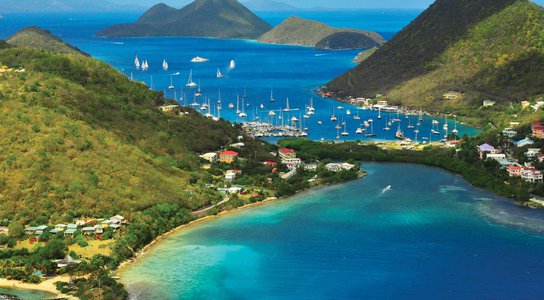The Commonwealth’s Caribbean nations pioneered the citizenship-by-investment scheme, and their visa-free access to the EU and UK has helped them remain attractive for those in the market for a ‘Golden Visa’.
Today is Commonwealth Day, and this year the theme is ‘A Connected Commonwealth’. How appropriate – it is after all, the Commonwealth’s incredible connectedness that has made its members such successful players in the fast-expanding US$3 billion ‘Golden Visa’ market.
Golden visas – or citizenship-by-investment programmes for those in the know – are schemes where the wealthy can invest lots of cash in return for residency rights and, sometimes, a second passport.
In fact, golden visas were basically invented in the Caribbean. St Kitts & Nevis established the very first citizenship-by-investment programme in 1984 and was followed quickly by many of its Commonwealth neighbours.
Today, some of the cheapest and most attractive fast-track schemes are offered by Antigua & Barbuda, Dominica, Grenada, Saint Kitts & Nevis, and Saint Lucia. Vanuatu also has skin the game, recently toying with the idea of ‘bitcoin’ citizenship.
For these small islands, golden visas are a lucrative business and for buyers, they open the door to ease of travel and tax ‘efficiency’. Often, there are no taxes and no residency requirements – with as little as $100,000 you can enjoy the many benefits of visa-free access to the EU, UK, Hong Kong, and over 120 countries.
These schemes have expanded dramatically over the last two decades, but recently concerns about the risks posed by lax checks on the wealth and background of applicants have put the schemes in the spotlight.
Following a year-long study, the European Commission has concluded that selling golden visas to the super-rich threatens the security of European citizens, creating risks of money laundering, tax evasion and corruption.
Our own research into European schemes found that golden visa schemes are an attractive prospect for the criminal and the corrupt and that the ability of Member States to identify risky applicants is patchy at best.
The good news is that the world is slowly waking up to the risks of selling visas and passports to the super-rich.
Following their report, the European Commission called on EU Member States to come together and reform their programmes, while just last week the UK just announced some (paltry) reforms to their gold-plated scheme.
But the problem is that no matter how strongly golden visas are regulated within the EU and UK, these markets are still open to the corrupt and the criminal if countries to whom they grant visa-free travel continue to sell citizenship with few questions asked.
After all, the risks of doing business with such individuals is not contained within the issuing country - lack of residency requirements and low due diligence mean that these schemes pose a risk to all countries they offer visa-free access to.
But what does this risk look like? Over the past two years investigative journalists have newspaper exposed how golden visa schemes in Europe sold residency to executives linked to the Brazilian ‘Car Wash’ scandal, relatives of an Angolan politician accused of bribery, and Ukrainian and Russian oligarchs.
The Caribbean schemes meanwhile have been caught up in scandals related to Chinese fugitives, an Indian ‘diamantaire’ facing extradition, and a Canadian accused of being a ‘dark-net mastermind’.
The Canadian government has already taken action against the jurisdictions, cancelling visa-free travel for Antigua & Bermuda in 2017, citing risks associated with the lack of a residency requirement and concerns about poor due diligence.
The European Commission too is showing willingness to at least acknowledge the problem, noting in its recent report that “visa-free access to the Union should not be used as a tool for leveraging individual investment in return for citizenship”.
There’s a lot more that the EU (and certainly the UK) can do to close the door to the corrupt, but ultimately we need to see a concerted, international approach to stop the criminal and the corrupt from securing safe haven.
The G20 has long held a commitment to deny visas to corrupt officials. Setting common standards for golden visas is one of the ways they can make good on that promise. The Financial Action Taskforce – the international body that sets anti-money laundering standards for banks and lawyers – also has a role to play here by bringing businesses that sell golden visa within their sights.
In the meantime, the UK and other Commonwealth countries should use their leverage to suspend visa-free arrangements with those that hawk golden visas until they can demonstrate that the proper checks are in place.
Until then, every day could be Commonwealth Day for tax dodgers and money launderers.

